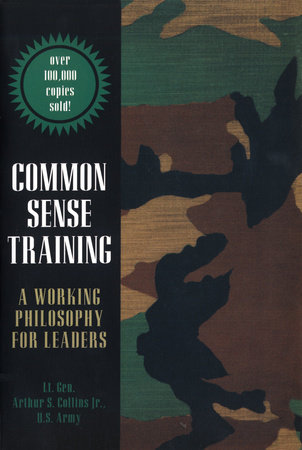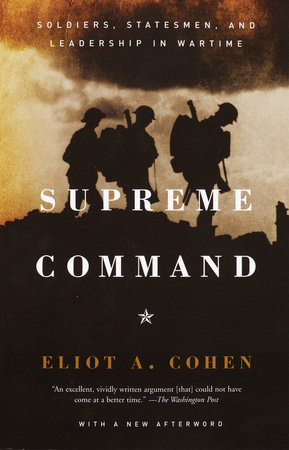

Supreme Command
By Eliot A. Cohen
By Eliot A. Cohen
Category: Military History | World History

-
$18.00
Sep 09, 2003 | ISBN 9781400034048
Buy the Paperback:
YOU MAY ALSO LIKE

The Changing Face of War
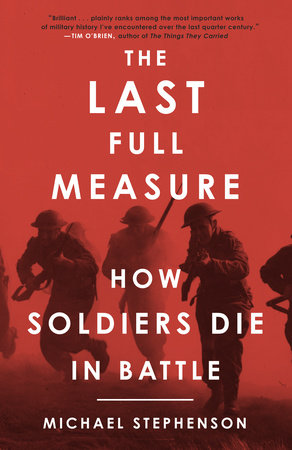
The Last Full Measure
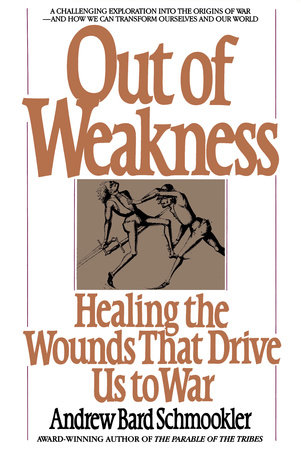
Out of Weakness

The Arab World
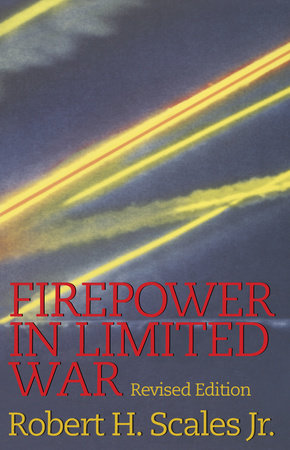
Firepower in Limited War

Iroquois Diplomacy on the Early American Frontier

Price of Exit
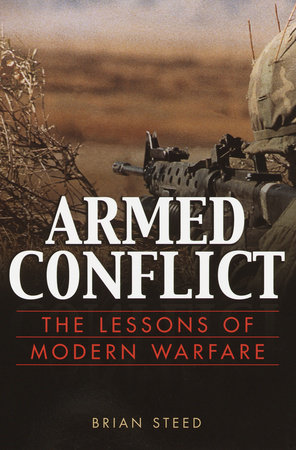
Armed Conflict
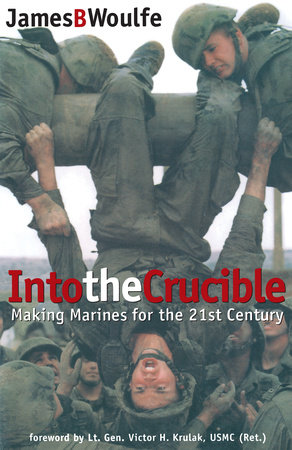
Into the Crucible
Praise
“An excellent, vividly written argument [that] could not have come at a better time. —The Washington Post
“Brilliant. . . . Cohen argues convincingly that all great wartime leaders—Lincoln, Clemenceau, Churchill, Ben Gurion—never left the military to make its own policy, but constantly prodded, challenged, and gave it direction.” —National Review
“A brilliant account of Lincoln, Churchill, Clemenceau and Ben Gurion—how each man handled the military leaders who served him.”—The Wall Street Journal
“Fascinating.…Mr. Cohen’s point is ultimately not a sentimental but a substantive one.…His elucidation of his theory is organized tightly and rendered crisply.”— The New York Times
“Superb . . . Cohen is persuasive in his argument.” —Los Angeles Times Book Review
“Every so often a book appears just at the moment when it is most needed. . . . Such a book is Supreme Command, a superb study of civilian commanders in chief in times of war by the nation’s leading scholar of military-civilian relations.”–The Weekly Standard
“Cohen’s well-written, absorbing critique of the normal theory is nothing short of crushing. . . . Invaluable.”–The New Leader
“It is well worth devoting some energy to stamping on the myth that soldiers should be allowed to go about their business without pesky politicians getting in the way, and an important contribution to this demolition job has been made by Eliot Cohen.”–The Economist
“Supreme Command is Cohen’s tour de force. . . . An eloquent, eminently approachable argument. . . . Essential reading.”–Choice
“Supreme Command will be read as often by the professional military and the civil servants and politicians that employ them as is Samuel Huntington’s The Soldiers and the State and Morris Janowitz’s The Professional Soldier, both of which are true classics.”–The Washington Times
“Intrinsically significant to the study of strategy and important on a practical level.”–Booklist
“Important. . . . Many senior politicians now balk at asking tough questions or challenging military judgments even as they set ambitious goals. But Cohen’s logic remains sound, and it would be a shame if it took a calamity, resulting from a combination of military misjudgment and civilian passivity, before it gets a hearing.”–Foreign Affairs
“Cohen, who writes with concision and insight, robustly argues that, far from being incompetent dunderheads, as commonly portrayed, civilian statesmen can be brilliant commanders. . . . Give[s] us much to ponder.”–Washington Monthly
“Supreme Command is a must read for the highest civilian and military leadership and should also rank high on military professional reading lists.”–Naval War College Review
“Essential reading for anyone concerned with current United States civil-military relations and national strategy. . . . It is cogent in nearly every detail–and we need all the help it can offer.”–The Journal of Military History
“Cohen’s revisionist thesis is especially timely. . . . [He] is surely right that we need to develop different — more traditional — attitudes and protocols concerning the military-civilian partnership.” –Commentary
“No one is better qualified than Cohen to write about political leadership in wartime. . . . This sustained analysis by a perceptive ‘subordinate’ who is also an outstanding historian should become required reading for statesmen and students alike.”–The National Interest
21 Books You’ve Been Meaning to Read
Just for joining you’ll get personalized recommendations on your dashboard daily and features only for members.
Find Out More Join Now Sign In






